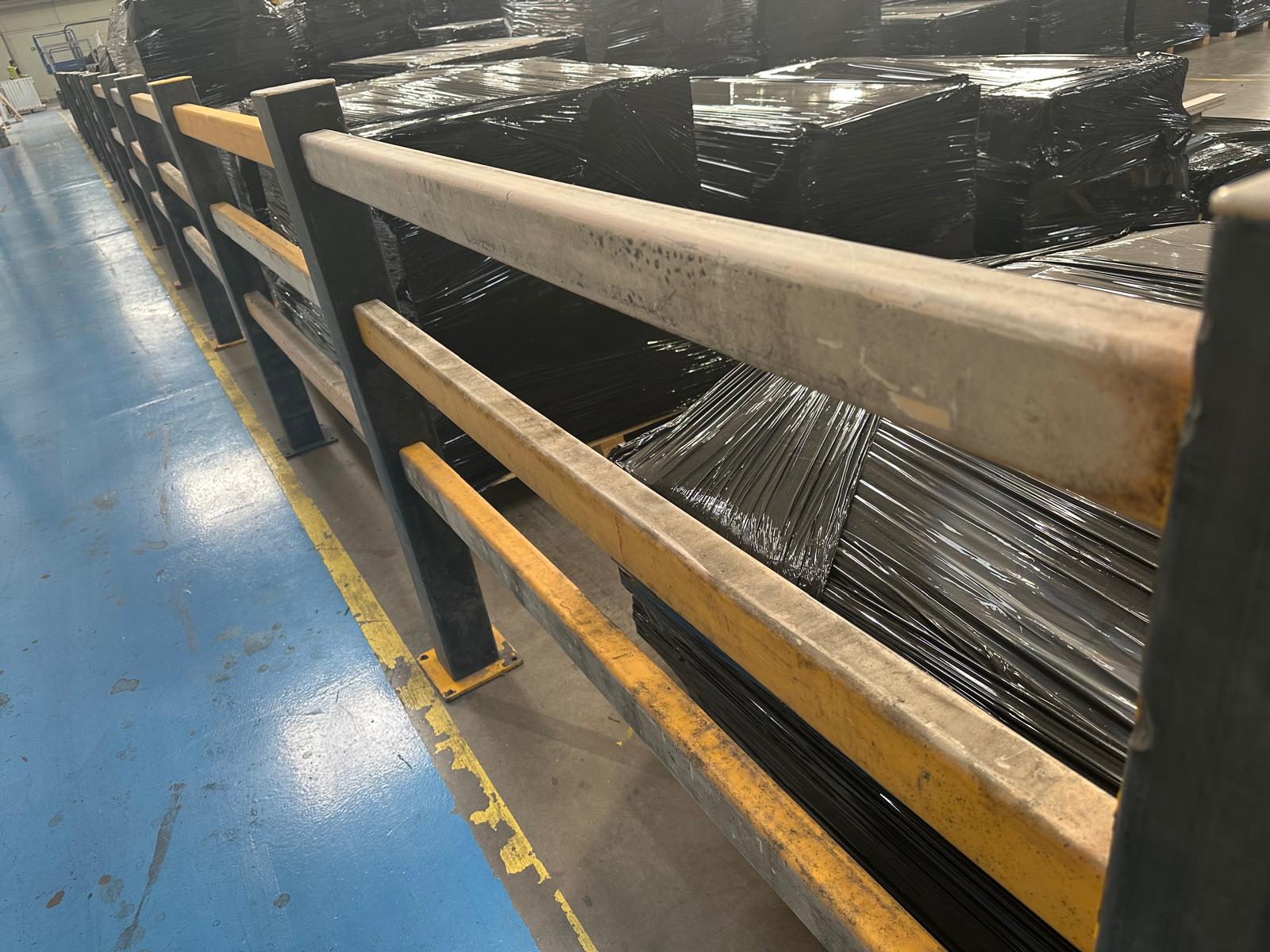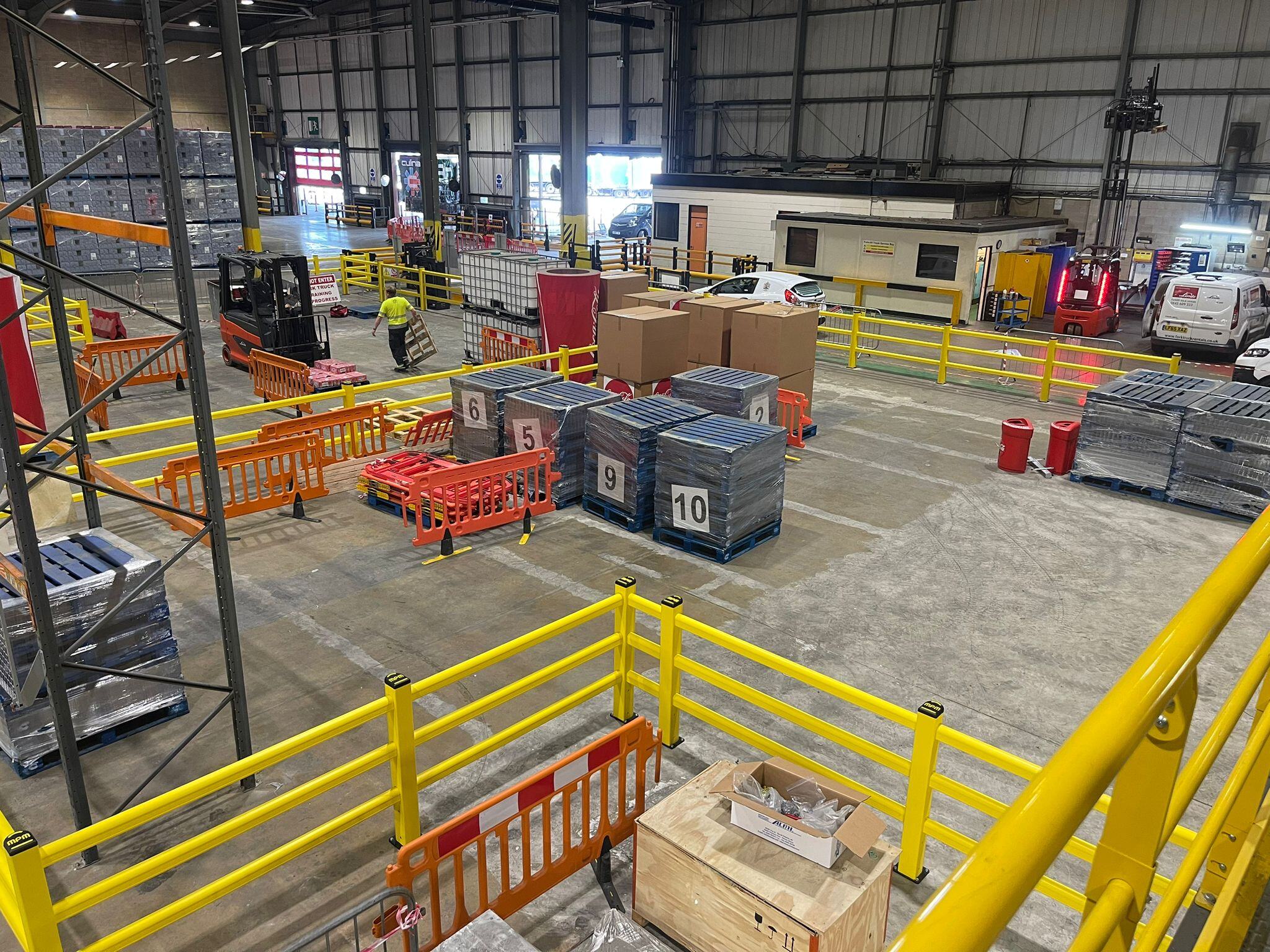Safety barriers for warehouses, what you need to know.
 By
Caleb Shaw
·
4 minute read
By
Caleb Shaw
·
4 minute read
When it comes to warehouse safety, having the right barriers in place can make all the difference. These essential installations help protect both your employees and valuable inventory from accidents and damages. But with so many options available, how do you know what’s best for your specific needs? Whether you’re looking to prevent collisions or simply keep areas organized, understanding safety barriers is key. Let's dive into everything you need to know about these vital components of warehouse management!
What are safety barriers for warehouses?
Safety barriers for warehouses are physical structures designed to protect both people and property. They serve as crucial boundaries, delineating hazardous areas from safe zones.
These barriers can come in various forms, such as guardrails, bollards, and fence systems. Each type serves a specific purpose in preventing accidents or unauthorized access to sensitive areas.
By clearly marking dangerous locations like loading docks or machinery zones, safety barriers help create a safer work environment. They not only guide pedestrian traffic but also protect equipment and inventory from potential collisions with forklifts or vehicles.
In essence, these installations play a vital role in enhancing operational efficiency while prioritizing employee safety. Understanding their function is the first step toward making informed decisions about which types best suit your warehouse needs.

Flexible barriers vs rigid
When it comes to safety barriers, you have two primary types: flexible and rigid. Each serves a distinct purpose in warehouse settings.
Flexible barriers are designed to absorb impact. They bend upon collision, minimizing damage both to the barrier and the vehicle involved. This adaptability often results in fewer repairs over time and can be particularly effective in high-traffic areas where accidents might occur frequently. The downside to a flexible barrier is that the initial outlay may be higher and the impact resistance requirements needed to be factored in.
On the other hand, rigid barriers provide a solid line of defense. Made from durable materials like steel or concrete, they offer excellent protection against heavy machinery and can withstand significant force without bending or breaking. This makes them ideal for safeguarding critical zones. The downside to these rigid barriers is that the cost per impact is many times higher than flexible barriers,
Choosing between these options largely depends on your specific needs. Consider factors like traffic volume, potential impact forces, and maintenance costs when making your decision. Each type has its advantages; understanding these will help ensure optimal safety in your workplace environment.
How much do they cost?
The cost of safety barriers for warehouses can vary significantly based on several factors. On average, you might expect to invest anywhere from a few hundred to several thousand per pounds per unit.
Material choice plays a crucial role in pricing. For instance, flexible barriers tend to be more expensive than rigid ones due to their polymer construction however they have an easier installation processes.
Customization also impacts costs. If your facility requires specific designs or colors, the price will likely increase. Additionally, features like impact resistance or visibility enhancements will add to the overall expense.
Installation fees should not be overlooked either. Some suppliers offer inclusive packages that cover both product and setup, while others charge separately for labor.
Lastly, always factor in maintenance costs over time. Regular upkeep ensures longevity but may influence your budget considerations upfront.
Read the cost of flexible barriers article here.
What's included in the price?
When considering safety barriers for your warehouse, understanding what’s included in the price is crucial. Typically, the cost covers not just the barrier itself but also installation services. Some suppliers offer a complete package that ensures everything is seamlessly set up.
Another aspect to consider is any additional features or accessories. This can include reflective tape for visibility, mounting brackets, and even maintenance plans. These elements may add to your initial outlay but enhance overall safety.
Don't forget about warranties and support. A good supplier will provide protection against defects and often includes customer service support as part of the deal.
Always ask for detailed quotes that break down costs clearly. Transparency helps avoid unexpected charges later on while ensuring you get what you pay for without hidden surprises lurking around the corner.
What can go wrong if you choose the wrong one...
Choosing the wrong safety barrier can lead to serious consequences. Imagine a scenario where a rigid barrier is installed in an area that requires flexibility. It could cause accidents instead of preventing them, endangering lives.
Inadequate barriers may not withstand impacts from forklifts or other equipment. This lack of durability can result in costly repairs and increased downtime for your warehouse operations.
Additionally, inappropriate barriers often fail safety regulations, leading to potential fines or legal issues down the line. The last thing you want is to face regulatory scrutiny because of poor choices made during installation.
Moreover, choosing low-quality materials might save money initially but will likely lead to faster deterioration and replacement needs. Over time, this decision could cost more than investing in reliable options upfront. Your employees deserve better protection; don’t compromise on their safety with the wrong choice.
How to choose the right supplier for you
Choosing the right supplier for safety barriers is crucial. Not all suppliers offer the same level of quality, service, or expertise. Start by researching potential suppliers thoroughly. Look at their reputation in the industry and read customer reviews to gauge satisfaction levels.
Check if they provide a range of options tailored to your specific needs—whether flexible or rigid barriers. A good supplier should be knowledgeable about regulations and compliance standards relevant to your warehouse operations.
Don't hesitate to ask questions regarding their products' durability and installation processes. This ensures you understand what you're getting into from day one. Demand transparency in pricing as well; make sure there are no hidden fees that could affect your budget later on.
Consider after-sales support as well. Will they assist with replacements or repairs? The best suppliers often have strong warranties and dedicated customer service teams willing to help post-purchase.
Ultimately, take your time selecting a partner who understands your unique requirements and can deliver safe solutions tailored specifically for your warehouse environment. Making an informed choice here can save you headaches down the road while ensuring safety remains a top priority in your operations.



